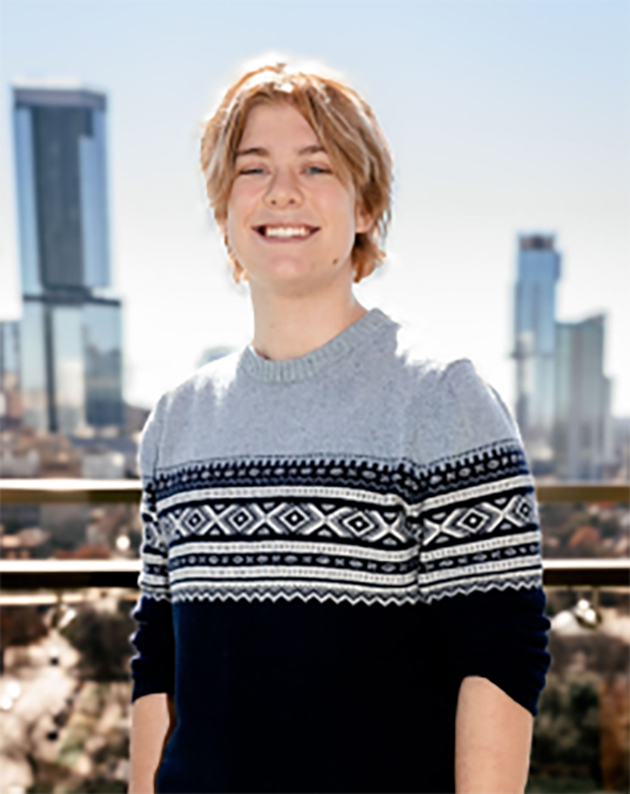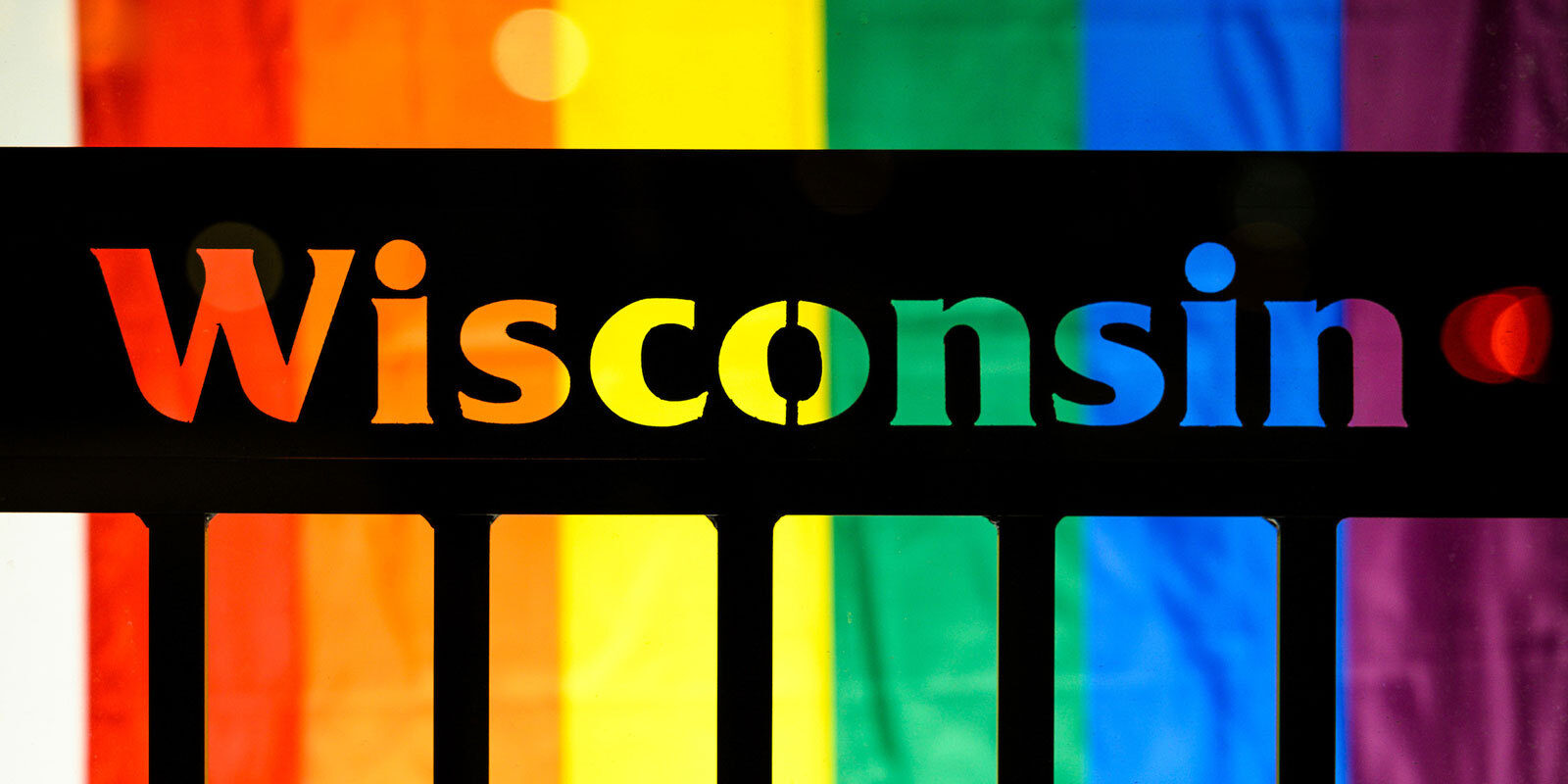When Forrest Jensen arrived at UW–Madison in 2022, he picked up where he left off in high school — practicing activism and stepping in to help student organizations that were struggling to survive.
In his hometown, Jensen, who identifies as transgender, had worked to salvage his high school’s Gay-Straight Alliance group that had dwindled in the wake of the COVID-19 pandemic. He also spoke out against his local school board, which, at the time, was considering several pieces of legislation he found to be transphobic.

“In a broader sense, if things are going to change at a school level, a lot of it has to be from the students,” Jensen says.
Recently, Jensen was awarded the Alex and Demiana Hanna Pride Scholarship through the Department of Sociology, a scholarship designed to support students engaged in activities that advocate for and support the LGBTQ+ community.
Jensen’s been doing both for many years now. He found his earliest connections in Madison by volunteering for LGBT Books to Prisoners, a trans-positive community nonprofit organization that provides literature to incarcerated queer individuals.
“It’s probably my favorite thing I’ve ever done on campus so far in regard to activism,” Jensen says.
After a brief stint with UW–Madison’s Gender and Sexuality Campus Center, Jensen landed a job with the UW–Madison Office of Inclusion Education, posting on the office’s social media channels and running an educational workshop. This fall, Jensen plans to try to re-invigorate another LGBTQ+-focused group: The UW–Madison Pride Society, the oldest registered student organization on campus focusing on LGBTQ+ students. The society, which typically hosts a Pride Prom each spring, saw most of its veteran student leaders graduate this year.
“I’m really hoping to try to help build that back up and use that as a way to build queer community on campus,” says Jensen. “I’m trying to build a broader culture.”
Jensen grew up as a self-described tomboy, preferring boys’ clothes and playing rough sports.
“When I got a little bit older in middle school, I existed in very queer spaces online, even though I didn’t know I was explicitly a part of the LGBTQ+ community at that time,” he says. “When I got to high school and was able to interact with more queer spaces in real life, I definitely discovered myself more.”
It wasn’t an easy journey. Jensen attended parochial schools until high school, bouncing around until he found individuals and groups that provided the support he needed. While he didn’t face a lot of outward discrimination, he did struggle with feelings of guilt, shame and self-hatred in some environments.
“I think that definitely reflects the experience of a lot of people, especially people who did not come out as queer at a young age,” says Jensen. “A lot of it is just this internal journey of trying to grow in love and accept yourself.”
Jensen says he’s grateful for the resources UW–Madison offers for LGBTQ+ students — the care University Health Services provides for trans students and the Gender and Sexuality Campus Center. He has also encountered many professors who have focused on teaching inclusivity. But he also believes that the campus community has work to do.
Trying to help other people and make his community better has helped Jensen feel better about and come to terms with himself. Jensen hopes to continue his path of activism and earn a PhD in sociology, with the eventual aim of a career in research and academia.
“I think that’s definitely where my heart is at,” he says. “That’s work that I think is really important and needs to be done. And activism is an expression of my queer identity.”
